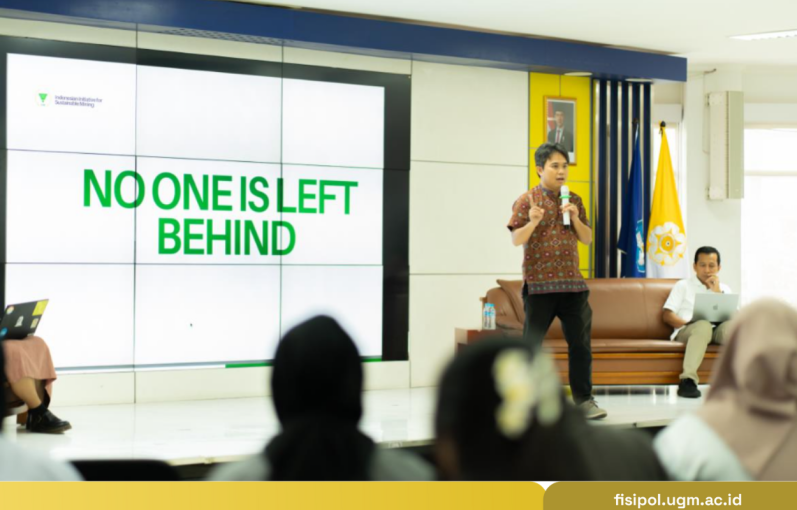
Yogyakarta, 25 February 2025–DPP Fisipol UGM held a seminar entitled “The Politics of Energy Transition: Coal Phase-Out and the Future of Renewable Energy Financing” to encourage an equitable energy transition. The seminar looked at the challenges and strategies of renewable energy holistically, from economic to infrastructure development planning. The discussion was enriched from various perspectives, namely Nanang Indra Kurniawan (Lecturer of DPP UGM), Rezki Syahrir (Co-Founder of Non-Governmental Organization Indonesian Initiative for Sustainable Mining/IISM), and moderated by Primi Suharmadhi Putri (PhD Candidate Oulu University).
Indonesia’s energy transition is a crucial step in mitigating the impact of the climate crisis. The seminar opened with a presentation on efforts to reduce dependence on fossil energy, especially coal, which is still the country’s largest electricity source. The energy transition significantly impacts Indonesia’s coal exports, so early retirement of coal-fired power plants is one option considered, even though it requires a lot of money.
“To commission a coal-fired power plant, PLN needs 30-50 trillion. Meanwhile, Indonesia is one of the largest coal exporters in the world. Reflecting on early retirement from developed countries, social conflict happens locally, so it is important to determine energy policies that do not burden the community,” said Rezki in his presentation.
This public lecture emphasised the importance of equitable natural resource governance and strategic steps in realising the energy transition. The most crucial first step in discovering new renewable energy is investment or financing strategy. Sustainable financing is considered a key element in ensuring the phase-out of coal-fired power plants while supporting investment in the clean energy sector. Strengthening investment in renewable energy technologies such as solar, wind and hydro will be a fundamental step in ensuring future energy supply sustainability.
Thus, this seminar is a concrete step in encouraging cross-sector collaboration to ensure an inclusive, equitable, and sustainable energy transition. This emphasises the Faculty’s commitment to supporting the achievement of SDG 7 for Affordable and Clean Energy.
